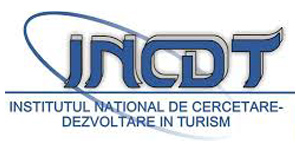Summary
Tourism Satellite Account (TSA) is a statistical instrument developed to measure the economic contribution of tourism based on internationally agreed standards endorsed in 2008 by the United Nations World Tourism Organization (UNWTO), Statistical Office of the European Union – Eurostat and Organization for Economic Co-operation and Development (OECD). However, par excellence, this instrument is applicable mostly at national level (TSA being in fact an extension of the System of National Accounts (SNA), the latter representing a set of recommendations at international level to measure the economic activity in a country), worldwide being a relatively small number of countries that have studied and/or applied TSA at regional level.
The purpose of this project is to analyse the applicability of TSA at regional level in Romania considering its eight development regions (NUTS 2 level) as well as to develop an experimental calculation of some macroeconomic aggregates at regional level with relevance for tourism (e.g. Regional Gross Value Added in Tourism, Regional Gross Domestic Product in Tourism). It is important to mention that starting 2013 TSA is implemented at national level in Romania by the National Institute of Statistics.
In the absence of international standards at regional level similar with the SNA, the starting point is to perform an analysis of methodologies, results and difficulties encountered by different countries that implemented (or are in the process of implementing) TSA at regional level. Further, after investigating the existent data sources in Romania, the possibilities to apply at regional level this statistical instrument in Romania will be highlighted as well as the constraints/limitations encountered. The obtained results will support policy-makers at regional level but also at national level to raise awareness on the economic importance of tourism in each development region of Romania.


